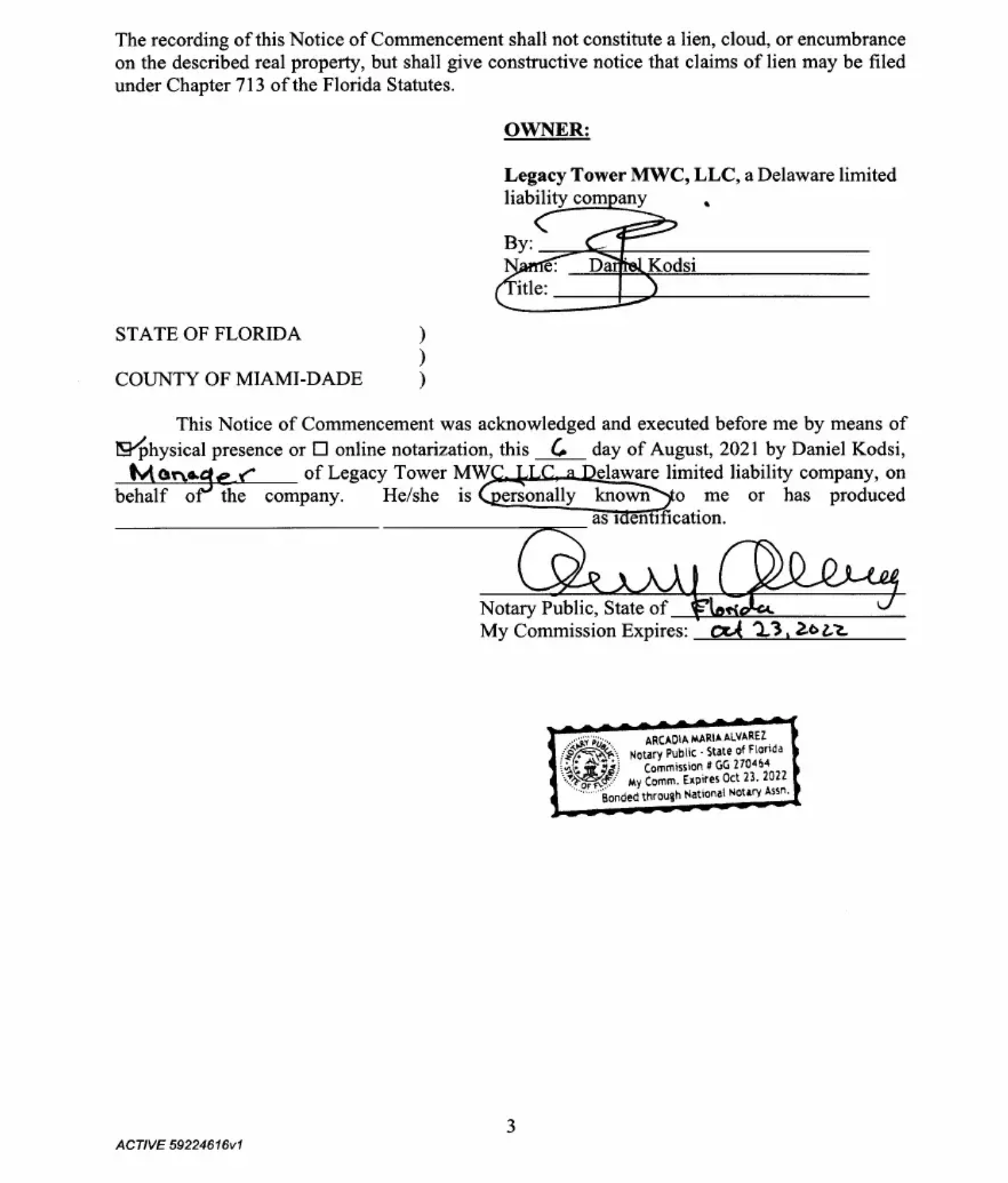So listen up, folks. If you've ever found yourself scratching your head wondering what the deal is with court clerk Miami Dade official records, you're not alone. Let me break it down for ya real quick. The Miami-Dade Clerk of Courts handles a massive amount of legal documents, and these official records play a crucial role in ensuring transparency and accountability in the legal system. Whether you're a lawyer, a property buyer, or just someone trying to dig up some info, this system's got your back. But hey, navigating it can feel like trying to find a needle in a haystack if you don’t know where to start.
Official records in Miami-Dade aren't just random files sitting around in a dusty old office. These are legit documents that affect real people's lives. From marriage licenses to property deeds, every piece of paper has a story. And guess what? You can access all of this info online, saving yourself the trouble of trekking down to the courthouse. But before you dive in, you need to know the ins and outs of how this system works.
Now, here’s the deal. Whether you're checking out property records or searching for public documents, the Miami-Dade Clerk of Courts website is your go-to spot. But it's not always as straightforward as it seems. There are some tricks and tips that can make your life a whole lot easier. So stick around because I’m about to drop some knowledge that’ll help you get exactly what you need without losing your mind in the process.
Read also:Gatlinburg Cabins With Private Indoor Pools Your Ultimate Relaxation Guide
Understanding the Role of the Court Clerk in Miami-Dade
Alright, let’s start by getting to know the court clerk. Think of them as the gatekeepers of all things legal in Miami-Dade County. The court clerk's office isn't just a place where people file papers; it's the heart of the judicial system. They manage everything from court filings to official records, ensuring that everything is recorded and stored properly. It's like having a super-organized librarian for all your legal needs.
Here’s the kicker: the court clerk doesn’t just file papers and call it a day. They’re responsible for maintaining the integrity of official records, making sure that every document is accurate and accessible. This means that when you’re searching for a specific record, you can trust that it’s legit and hasn’t been tampered with. That’s huge, especially in a world where misinformation runs rampant.
What Exactly Do Court Clerks Do?
Let me break it down for you. Court clerks handle a ton of responsibilities, and it’s not just about filing paperwork. They:
- Manage court dockets and schedules
- Oversee the collection of court fees and fines
- Maintain official records, including property deeds, marriage licenses, and more
- Provide public access to these records through their website
- Ensure compliance with state and federal laws
So yeah, they’re basically the backbone of the legal system in Miami-Dade. Without them, the whole thing would fall apart.
What Are Official Records and Why Do They Matter?
Official records are the lifeblood of the legal system. These documents include everything from property deeds and marriage licenses to liens and judgments. They’re not just random papers; they’re legally binding records that affect real people’s lives. For example, if you’re buying a house, you need to check the official records to make sure there aren’t any liens on the property. If you’re getting married, you’ll need a marriage license, which becomes part of the official records.
Here’s the thing: official records aren’t just for lawyers and real estate agents. They’re public documents, meaning anyone can access them. This transparency is key to maintaining trust in the legal system. It ensures that everything is above board and that there’s no funny business going on behind closed doors.
Read also:Sean Duffy Kids Names A Closer Look At The Man Behind The Music And His Family
Types of Official Records You Can Access
Now, let’s talk about the different types of official records you can find in Miami-Dade. Here’s a quick rundown:
- Property Records: These include deeds, mortgages, and liens. If you’re buying or selling a house, you’ll want to check these out.
- Marriage Licenses: Whether you’re tying the knot or just curious about someone’s marital status, these records are public.
- Business Filings: If you’re starting a business or researching a company, you can find incorporation documents and other filings here.
- Liens and Judgments: These records show any legal actions taken against a person or business, including unpaid debts or court rulings.
So yeah, there’s a lot you can dig up if you know where to look.
How to Access Court Clerk Miami Dade Official Records
Now that you know what official records are and why they matter, let’s talk about how to access them. The Miami-Dade Clerk of Courts has made it super easy to find what you’re looking for online. You don’t even have to leave your house to get the info you need. But there are a few things you should know to make the process smoother.
First off, head over to the official Miami-Dade Clerk of Courts website. From there, you can search for records using their online portal. You’ll need some basic info, like names or property addresses, to narrow down your search. It’s not rocket science, but it does require a bit of patience and attention to detail.
Step-by-Step Guide to Searching Official Records
Here’s a quick step-by-step guide to help you navigate the system:
- Go to the Miami-Dade Clerk of Courts website.
- Click on the “Official Records Search” option.
- Enter the relevant details, like a name or property address.
- Review the results and click on the document you need.
- Download or print the document for your records.
It’s that simple. Of course, if you’re looking for something specific, you might need to refine your search a bit more. But trust me, once you get the hang of it, you’ll be a pro in no time.
Common Challenges When Searching for Official Records
Let’s be real, folks. Searching for official records isn’t always a walk in the park. There are a few common challenges that people run into, and it’s important to be prepared for them. One of the biggest issues is incomplete or incorrect information. If you’re searching for a property record, for example, and the address is slightly off, you might not find what you’re looking for. It’s frustrating, but it happens.
Another challenge is understanding the legal jargon. Some of these documents are filled with terms that make your head spin. Don’t worry, though. You can usually find explanations or glossaries online to help you make sense of it all.
Tips for Overcoming These Challenges
Here are a few tips to help you overcome these hurdles:
- Double-check all the info you enter into the search fields.
- Use variations of names or addresses if you’re not getting results.
- Take your time and don’t rush through the process.
- If you’re stuck, reach out to the court clerk’s office for assistance.
Remember, patience is key. The more time you spend on your search, the better your chances of finding what you need.
Why Transparency in Official Records Matters
Transparency in official records isn’t just a buzzword; it’s a necessity. When you can access these documents easily, it builds trust in the legal system. It shows that everything is out in the open and that there’s no hidden agenda. This is especially important in a place like Miami-Dade, where diversity and cultural differences can sometimes lead to misunderstandings.
Think about it. If you’re buying a house, wouldn’t you want to know everything about it before you sign on the dotted line? Or if you’re getting married, wouldn’t you want to make sure your marriage license is legit? Transparency ensures that everyone has access to the same information, leveling the playing field for all.
The Impact of Transparency on the Community
Transparency in official records has a ripple effect on the community. It promotes accountability, reduces corruption, and empowers citizens to make informed decisions. When people can see exactly what’s going on, they’re more likely to participate in the legal process and hold officials accountable.
For example, if someone tries to sell you a house with a lien on it, you can easily check the official records to verify the info. This protects you from getting scammed and ensures that the transaction is legit. That’s the power of transparency in action.
Legal Considerations When Accessing Official Records
Before we wrap things up, let’s talk about the legal side of things. While official records are public documents, there are still some rules you need to follow. For one, you can’t use these records for illegal purposes, like identity theft or fraud. That’s a big no-no. Additionally, some records may have restrictions on how they can be used or shared.
It’s also important to note that while most official records are available online, some may require you to visit the courthouse in person. This is usually for more sensitive documents or those that aren’t yet digitized. So if you can’t find what you’re looking for online, don’t despair. Just head down to the clerk’s office and ask for help.
Best Practices for Using Official Records
Here are a few best practices to keep in mind:
- Always verify the info you find with multiple sources if possible.
- Respect privacy laws and don’t misuse the information you find.
- Be aware of any fees associated with accessing or printing documents.
- If you’re unsure about something, consult with a legal professional.
By following these guidelines, you can ensure that you’re using official records responsibly and ethically.
Conclusion: Taking Action and Staying Informed
So there you have it, folks. Court clerk Miami Dade official records aren’t as intimidating as they seem. With a little bit of knowledge and some patience, you can navigate the system like a pro. Whether you’re buying a house, getting married, or just curious about someone’s past, these records are your key to unlocking the truth.
Now, here’s the deal. If you found this info helpful, don’t keep it to yourself. Share it with your friends and family so they can benefit from it too. And if you have any questions or feedback, drop a comment below. I’d love to hear from you. Oh, and don’t forget to check out some of our other articles for more tips and tricks on navigating the legal system. Stay informed, stay empowered!
Table of Contents
- Understanding the Role of the Court Clerk in Miami-Dade
- What Are Official Records and Why Do They Matter?
- How to Access Court Clerk Miami Dade Official Records
- Common Challenges When Searching for Official Records
- Why Transparency in Official Records Matters
- Legal Considerations When Accessing Official Records


